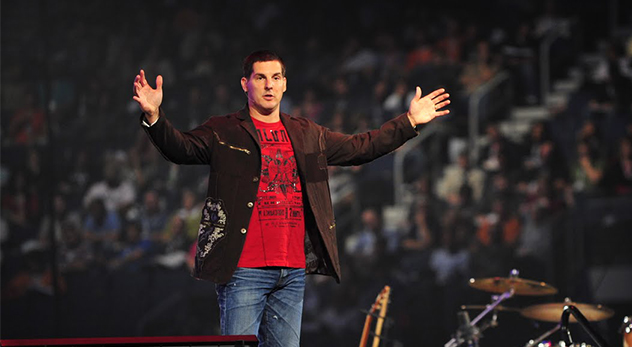
Does What We Believe Matter?
Many people are turned off by dogma, or doctrine, according to surveys, and some churches have accommodated this trend.
Many megachurches, for instance, try to provide something for everyone, no matter their beliefs. If you like “traditional’ services, they’ve got them. If you like less formal services, including Christian rock bands and ministers in torn jeans, they’ve got you covered.
Music is often an attraction. Sanctuaries become stages, making it hard to distinguish entertainment from worship. The web site of one of these churches says, “We strive to use relevant, meaningful, music to worship in a language that people understand.”
That, of course, is laudable, but the word “sanctuary” is from the Latin, “sanctus,” meaning “holy.” With the demise of sanctuaries, do these services maintain a sense of the holy?
A Dilemma
All churches should strive to be relevant, and it makes sense to use music to help. But a dilemma remains. If the aim of communal worship is to be relevant – with trendy music, emotional homilies and stage performances – are the churches offering anything that contemporary culture isn’t already offering? On the other hand, if you’re perceived to be irrelevant, how many people will be interested?
In one of my earliest blogs, I wrote about Rachel Held Evans, a young evangelical Christian who wrote a popular blog on faith. Tragically, she died earlier this year from complications of an infection. When she was well, she gave presentations to faith groups, and in a blog for CNN, “Why Millennials are Leaving the Church,” she wrote:
“Invariably, after I’ve finished my presentation and opened the floor to questions, a pastor raises his hand and says, “So what you’re saying is we need hipper worship bands. …”
“Time and again, the assumption among Christian leaders, and evangelical leaders in particular, is that the key to drawing twenty-somethings back to church is simply to make a few style updates – edgier music, more casual services, a coffee shop in the fellowship hall, a pastor who wears skinny jeans, an updated web site that includes online giving.
Hold the Lattes, Please
“…We want to be challenged to live lives of holiness,” she says, “not only when it comes to sex, but also when it comes to living simply, caring for the poor and oppressed, pursuing reconciliation, engaging in creation care and becoming peacemakers. You can’t hand us a latte and then go about business as usual and expect us to stick around.
“We’re not leaving the church because we don’t find the cool factor there; we’re leaving the church because we don’t find Jesus there.”
Sweeping aside centuries of doctrinal development, one mega-church
web site proclaims, “It’s
that simple. Love God and neighbor.”
That’s hard to argue against, given the advice, attributed to St. Augustine, to “love God and do what you want.” No doubt that in the Christian scheme of things, love trumps all. But it doesn’t mean we should stop trying to figure out how to apply Jesus’ teachings to our lives and adopt a sort of religious laissez- faire.
I think what Rachel Held Evans is saying is that you don’t become relevant by trying to be relevant. Something is relevant when it is significant or important in your life. And in the realm of faith, you expect relevancy to facilitate consideration of important questions, such as “Who is God and, and in the case of Christians, who is Jesus?” And, “What difference does it make in my life?”
Faith in What or Whom?
Doctrine, or dogma, answers these kinds of questions and comprises part of what it means to be a believer. Without doctrine, or beliefs, how can you talk about faith? “Faith in what or whom?’ In the case of Christianity – which is a way to follow Christ – how can you teach what Jesus taught without doctrine?
This blog isn’t meant to knock anyone’s faith nor the churches that are desperately trying to reach contemporary people with something meaningful. It’s only to say that relevancy is inadequate. Doctrine – finding the wisdom in religious tradition – is part of what makes faith meaningful.
What we believe matters.


